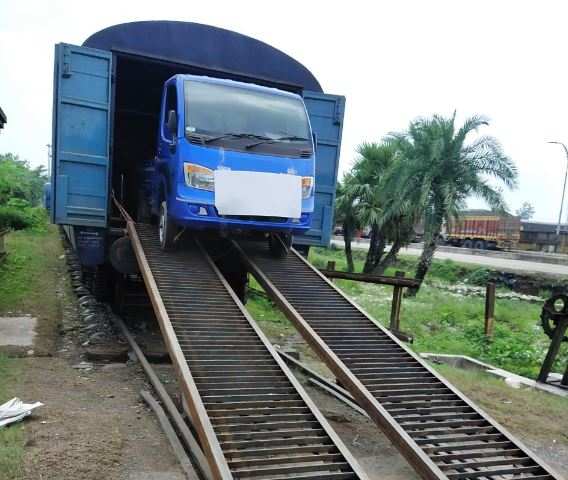September 15, 2020: The outbreak of covid-19 and the subsequent nationwide lockdown caused disruption across industries. Nonetheless, it gave Indian Railways an opportunity to gradually diversify the commodities it ferried across the country and make up for revenue loss from the the pandemic-induced slowdown in passenger train services.
Limited availability of truck drivers, frequent hurdles in inter-state movement amid the covid-19 pandemic, along with other factors such as substantial dip in transit time and the availability of monetary incentives, have enabled top automobile manufacturers to gradually use the vast network of Indian Railways to transport vehicles.
A senior government official said loading on railways has seen a rise. “Due to lockdown, loading was less in April, May and June. However, it picked up from July. Better monitoring of rakes improved turnaround, ensuring better availability of rakes for loading. 243 rakes were loaded in August (2020) against 127 last year. Similarly, up to 9 September, 79 rakes were loaded as against 33 last year” the official told Mint.
“Railways has reduced transit time by 40-50% and is able meet (customer’s) basic requirement of delivery within target time. There is also a possible shift in some road traffic to railways due the incentives offered (by railways),” said the official. The national transporter has been able to double its speed of freight trains from 23 kmph to 46 kmph as only a few passenger trains are operating across the country, reducing congestion drastically.
The shift is significant as the railways has been losing its share in overall freight movement to roads, with its modal share in logistics currently at 33%. Railway minister Piyush Goyal had recently said the national transporter is changing its work ‘culture’ to provide safe, punctual, and cost-effective solutions to its customers and aims to raise its share of freight business to 40%.
Umesh Bhanot, Managing Director, APL Logistics Vascor Automotive Pvt. Ltd said railways have increased its market share in automotive logistics this year owing to multiple reasons, including driver shortage in truck fleets due to covid-19 and the railways’ huge outreach across the industry.
“Cutting through lockdown regions to reach the destination, freight trains moved fast, while trucks moved slow due to multiple challenges, including state border issues. This increased de-facto availability of rolling stock due to quicker transport for rail logistics service providers,” Bhanot told Mint.
India’s second-largest carmaker by volume, Hyundai Motor India Ltd said that currently, over 10% of its total volumes are dispatched through the railway from two terminals near their factories.
“During the pre-covid times, an average of 10% of our monthly volumes was getting dispatched by rail. In August 2020 this proportion reached a record 13% of monthly volumes, given the currently higher available capacity in rail rakes and fluctuations in manpower availability in road networks. As the months go by, the dynamics may vary slightly, but we anticipate that a minimum of 10% proportion through rail will continue in the future,” Hyundai India spokesperson told Mint.
Source: live mint






